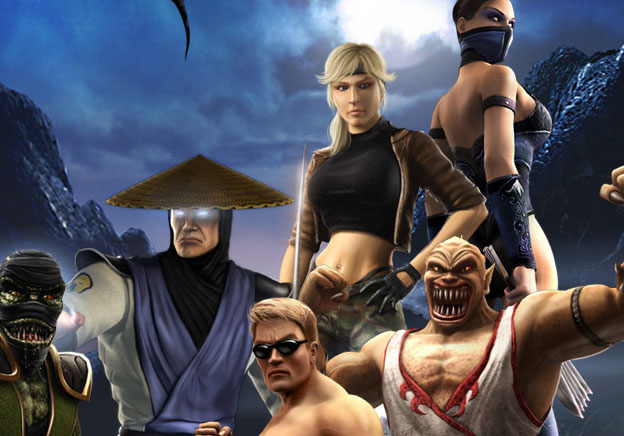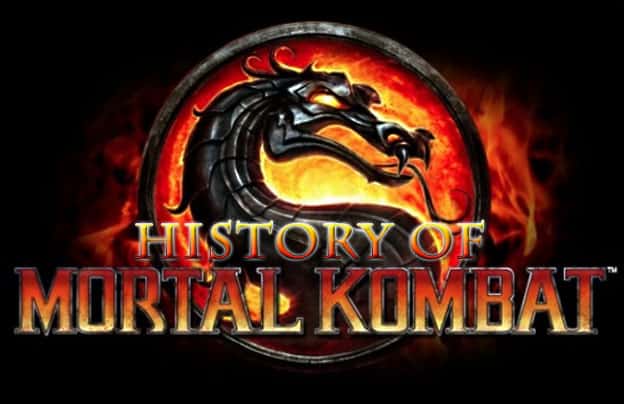History of Mortal Kombat
Since its early controversy-filled days, Mortal Kombat has not only supported scores of game sequels and spinoffs, it has influenced countless other forms of media. Actor Christopher Lambert of Highlander fame can thank the franchise for extending his fifteen minutes of fame by at least sixty seconds. (He played the role of Raiden in the1995 live action Mortal Kombat movie alongside pinup girl Taliso Soto, who was cast as Princess Katana.) The cartoony, over-the-top film proved popular with Mortal Kombat fans and earned more than $122 million dollars worldwide. It was followed by a considerably less-successful sequel, 1997’s Mortal Kombat: Annihilation, and more recently by an eight-minute short by Fame director, Kevin Tancharoen. (The latter having been rumored to have been made as a pitch to gain funding to create a third Mortal Kombat movie; thus far the only cinematic outcome has been a ten episode web series on YouTube called Mortal Kombat: Legacy.)
In addition to the big screen and the PC monitor, Mortal Kombat has also appeared in several incarnations on network television. The first was a 1995 prequel to the first MK movie called Mortal Kombat: The Journey Begins. This was followed by 1996’s animated series, Mortal Kombat: Defenders of the Realm, and later by 1998’s live action series, Mortal Kombat: Konquest. The extent of the series’ influence is further evidenced by the proliferation of other Mortal Kombat-themed items such as the Mortal Kombat (Collectible) Kard Game, two different comic series by Midway and comic publisher Malibu Comics, and a novelization of the first Mortal Kombat game by author Jeff Rovin.

While the quality of these ancillary products has definitely varied, the undeniable low point for the franchise was 1995’s Mortal Kombat Live Tour. This performance was nothing more than a goofy stage show wherein actors in spandex and absurdly bad wigs performed clunkily-choreographed, decidedly un-Mortal Kombat-like (translation: no blood or beheadings) fight sequences. The show debuted at Radio City Music Hall in New York City and followed the fighters’ search for a magical amulet. Attendees to the show were treated to a cheesy laser light show and given the opportunity to purchase items like baseball hats and hideous denim jackets with lightning bolts and the MK: Live Tour logo embroidered on them.
Despite this embarrassing chapter in Mortal Kombat history, the franchise is still going strong, as evidenced by the imminent release of yet another video game reboot simply called Mortal Kombat. The title’s creators (led by MK veteran Ed Boon) claim the game is a return to the series’ roots. Because Midway Games unfortunately had to file for Chapter 11 Bankruptcy in 2009, this will be the first title created under new management (the license was bought by Warner Bros.) and a reorganized development team now called NetherRealm Studios. The game embraces both past and present by hearkening back to the fictional timeline of the first three Mortal Kombat games while creating a new and deeper fighting experience than the series has yet seen.
The new MK features 3D characters on a 2D plane, thus placing matches in a (hopefully) more accessible 2.5D space. A new X-ray mode adds to the sadism factor, allowing players to watch as their opponents’ bones are shattered. Other new features include much-asked-for characters like Noob, Kano, and Ermac, a 3D viewing mode (on PS3 only), an online multiplayer tag-team mode, and a single player Challenge Mode which gives gamers the chance to hone their skills by playing ridiculous mini-games.
Love it or hate it, Mortal Kombat has, without a doubt, confirmed its staying power and appeal. After all, few game series—heck, few anything in the entertainment business—maintain such relevance and longevity. Though brutally simple in concept, it has wormed its way into our psyche in a way few things could, leaving an indelible impression on our collective pop culture consciousness. This month’s release of the new Mortal Kombat proves not only the franchise’s seemingly endless ability to tap into our innate savagery, but also its power to make us return for just one more Fatality.
By Neilie Johnson
CCC Freelance Writer
*The views expressed within this article are solely the opinion of the author and do not express the views held by Cheat Code Central.*
- Page 1
- Page 2
